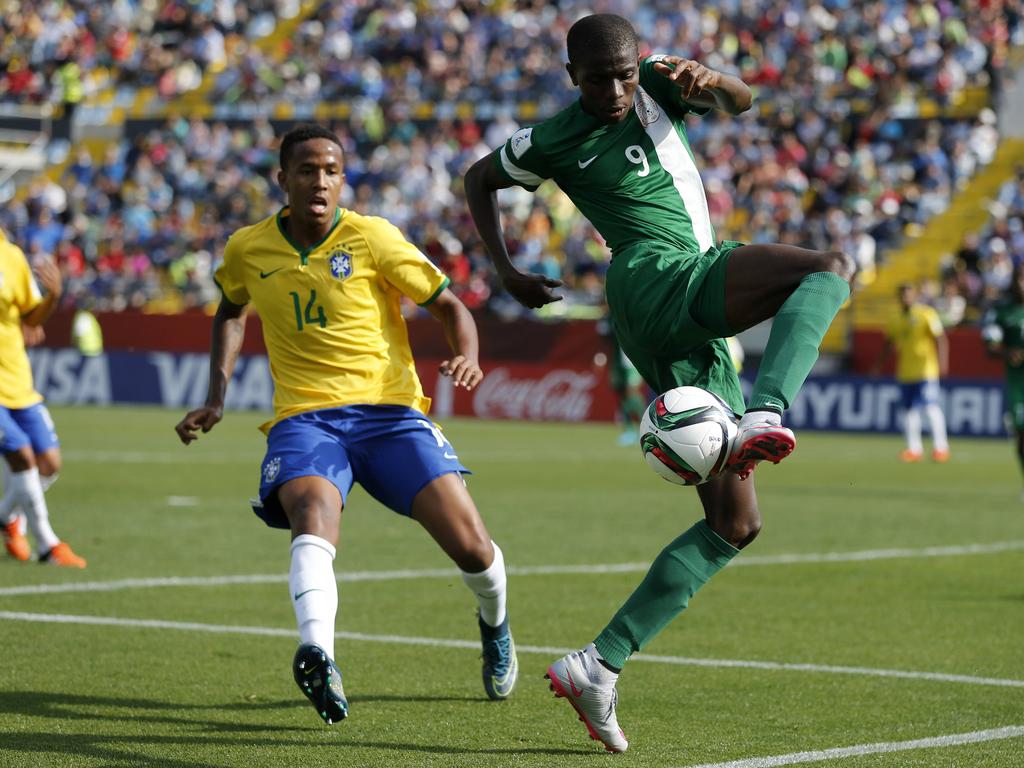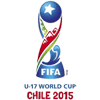Scouts search for next Messi at Under-17 World Cup

While boys from around the world chase the ball on the pitch at the under-17 World Cup, the stands are packed with talent scouts seeking the next Lionel Messi.
Agents from big European clubs are among the 2,000 or so talent-spotters who have descended on Chile, where the tournament runs until Sunday, on a poor continent particularly prized for its young football talent.
"The fashionable business in football at the moment is buying and selling young players," said Juan Pablo Meneses, a Chilean journalist and author of a book about child footballers who himself spent time as a scout.
The big deployment of scouts has caused a stir in the media, though most of them keep a discreet distance from the press.
Local newspaper La Tercera reported that agents from clubs such as Liverpool and Chelsea, Bayern Munich and Juventus were watching the tournament from the beginning.
Among the 500 or so young players in the tournament, Nigerian forward Victor Osimhen and Mexican midfielder Claudio Zamudio have been among the names most on the lips of the agents over the past three weeks.
Latin America, where 167 million people live in poverty according to the United Nations, has become the top focus of agents scouting for players in their teens or even younger.
There they can sign a talented player for $500, Meneses said, though the overall amounts that change hands in this business are unknown.
A Brazilian player draws a bigger price than a Mexican, for example, purely due to the pedigree of his home nation.
Investors have poured money into the region to sign contracts with young players in the hope of selling them on, possibly to the richest European clubs.
"Nowadays, finding a child with talent in Latin America who doesn't already have a contract is virtually impossible," said Meneses.
Once the youngster is signed, the investors cross their fingers that he doesn't get injured.
They dream of discovering the next Lionel Messi -- the Argentine star striker who is widely regarded as the world's best footballer and who joined Barcelona when he was 13 and made his first team debut at 16.
"Messi was sold to Barcelona for very little money compared to the millions of euros that he would cost today," Meneses said.
"An under-17 player is a better investment. There is a stronger chance of selling a footballer that is going to play for a professional team."
Barcelona are currently serving a one-year ban until January on registering new players after FIFA said they broke rules on the signing of foreign players under the age of 16.
Some European clubs such as Paris Saint Germain have set up their own football schools in South America, where pupils must cede their financial rights as players to the team.
Other agents secure legal consent from parents in the courts to sign their youngsters, and by doing so secure a percentage from the sale of the players' rights, said Meneses.
"In the football business there is no way to stop the buying and selling of minors," he said. "One of the main reasons is that the parents are the ones who most want the deals to go ahead."





![Coupe du Monde [U17]](https://s.hs-data.com/bilder/wettbewerbe/50/302.gif)